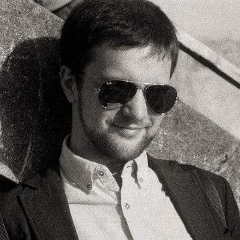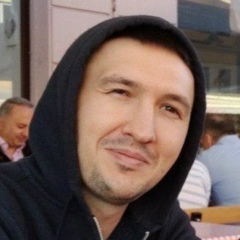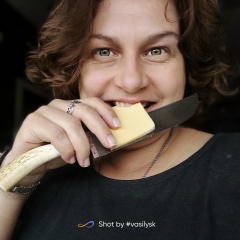Про воскресные выборы.
Я был членом комиссии на них — той учительницей, которая выдаёт вам бюллетень на участке, а потом подсчитывает голоса. Решил посмотреть на это дело изнутри. Много пишут про ад и фальсификации, расскажу и я.
Про выборы вообще. Это очень грустно, народ не идёт. А даже те, кто приходят, говорят, что их голос всё равно не важен. Впрочем, если десять лет это людям вдалбливать, такому результату удивляться не стоит.
Про результаты. У нас на участке (№1100) выборы были честными. Полтавченко получил 201/329 голосов. На муниципальных победили единоросы, бывшие депутаты, хотя были яркие независимые кандидаты. Это особенно грустно: если на губернаторских бюллетенях люди быстро ставили галку, то стенды с информацией о муниципалах рассматривали, выбирали. Но те, кто приходят, в основном в итоге выбирают знакомые фамилии.
Явка — 329/1990 (16.5%), из них 64 голоса — досрочка (20% от явки).
Про досрочку. Из ТИКа пришло 24 досрочных голоса, из ИКМО — 3. 40 человек проголосовало на участке, толп не было. Пара человек сказали, что их «настоятельно попросили» проголосовать досрочно. Родителей на родительском собрании мотивировали прийти на досрочку, но послушалось немного. Все заявления были оформлены корректно. По досрочным губернаторским бюллетеням процент у Полтавченко чуть выше, но не критично. Муниципальные мы не пересчитывали.
Про наблюдателей и СМИ. На этих выборах я понял важную вещь. Судя по всему, добрая половина всех скандалов на участках не связана с фальсификациями. Дело в том, что работа иногда оказывается очень нервной. Особенно после окончания голосования. Члены комиссии работают за деньги, а не за идею, они стараются сделать всё быстро и уйти домой. Выборная бухгалтерия очень сложна (это почти как устроиться на работу в университет). Иногда нужно по 10 раз пересчитать все бюллетени и голоса в списке избирателей, чтобы все пункты сошлись (досрочники из ТИКА и ИКМО, досрочники с УИКА, домашние, выборы губера, выборы муниципальные, бюллетени выданные, бюллетени испорченные, бюллетени в урне и т. д.). Я уже не говорю про составление итогового протокола и соответствующих бумаг. Представьте, что к бабусе, которая шестой раз не может досчитаться бюллетеня, подходит юноша и спрашивает, что это вы тут всё перебираете, карандашом помечаете? Или к секретарю, который из-за помарки опять опись или протокол переписывает. На нашем супер-корректном участке наблюдателя раз отослали подальше и попросили не мешать, а потом всё показали — когда доделали свою работу. Впрочем, наблюдатель отнеслась с пониманием.
Выводы. Если не сходятся цифры — это не обязательно говорит о фальсификациях. Если не дали копию протокола — это не обязательно говорит о фальсификациях. Если удалили с участка — то же самое. Если отказались пересчитывать голоса — то же самое.
Я читал у нескольких человек про открытое заполнение заявлений на досрочку членами УИК. Это безусловно нарушение, фальсификация, которая может повлиять на итоги. Такому я верю. Но нужно уметь фильтровать информацию. Как и везде.
Выборы — это нервная и тонкая работа коллектива малознакомых людей. Это нельзя не учитывать, если хочется достигнуть цели — честных результатов. Требовать и угрожать — неверный метод. Думаю, для наблюдателей нужно устраивать специальные тренинги, на которых отрабатывать неконфликтное решение спорных моментов. Удаление с участка — это, конечно, крутая история, популярная статья, но никак не поможет честным выборам. Хороший пример показал один наш муниципал, который сам познакомился с председателями комиссий, предупредил о своих наблюдателях (хотя делать это было необязательно): и к ним совсем другое отношение всей комиссии, а значит — большее влияние на её поведение. А это самое главное.
Обобщая, скажу, что честность выборов — это не дискретное измерение, а непрерывное: нужно аккуратно отвоёвывать каждый миллиметр, стремясь к идеалу. То, что на многих участках выборы были честными (хотя на некоторых точно были фальсификации) говорит о том, что нет повсеместного плана по накрутке голосов и т.д.. Фальсификации происходят там, где это получается. Это значит, что не нужно опускать руки, надо наращивать общественный контроль в виде независимых членов комиссий и (разумных) наблюдателей. К чему вам всем и советую приложить силы.
Я был членом комиссии на них — той учительницей, которая выдаёт вам бюллетень на участке, а потом подсчитывает голоса. Решил посмотреть на это дело изнутри. Много пишут про ад и фальсификации, расскажу и я.
Про выборы вообще. Это очень грустно, народ не идёт. А даже те, кто приходят, говорят, что их голос всё равно не важен. Впрочем, если десять лет это людям вдалбливать, такому результату удивляться не стоит.
Про результаты. У нас на участке (№1100) выборы были честными. Полтавченко получил 201/329 голосов. На муниципальных победили единоросы, бывшие депутаты, хотя были яркие независимые кандидаты. Это особенно грустно: если на губернаторских бюллетенях люди быстро ставили галку, то стенды с информацией о муниципалах рассматривали, выбирали. Но те, кто приходят, в основном в итоге выбирают знакомые фамилии.
Явка — 329/1990 (16.5%), из них 64 голоса — досрочка (20% от явки).
Про досрочку. Из ТИКа пришло 24 досрочных голоса, из ИКМО — 3. 40 человек проголосовало на участке, толп не было. Пара человек сказали, что их «настоятельно попросили» проголосовать досрочно. Родителей на родительском собрании мотивировали прийти на досрочку, но послушалось немного. Все заявления были оформлены корректно. По досрочным губернаторским бюллетеням процент у Полтавченко чуть выше, но не критично. Муниципальные мы не пересчитывали.
Про наблюдателей и СМИ. На этих выборах я понял важную вещь. Судя по всему, добрая половина всех скандалов на участках не связана с фальсификациями. Дело в том, что работа иногда оказывается очень нервной. Особенно после окончания голосования. Члены комиссии работают за деньги, а не за идею, они стараются сделать всё быстро и уйти домой. Выборная бухгалтерия очень сложна (это почти как устроиться на работу в университет). Иногда нужно по 10 раз пересчитать все бюллетени и голоса в списке избирателей, чтобы все пункты сошлись (досрочники из ТИКА и ИКМО, досрочники с УИКА, домашние, выборы губера, выборы муниципальные, бюллетени выданные, бюллетени испорченные, бюллетени в урне и т. д.). Я уже не говорю про составление итогового протокола и соответствующих бумаг. Представьте, что к бабусе, которая шестой раз не может досчитаться бюллетеня, подходит юноша и спрашивает, что это вы тут всё перебираете, карандашом помечаете? Или к секретарю, который из-за помарки опять опись или протокол переписывает. На нашем супер-корректном участке наблюдателя раз отослали подальше и попросили не мешать, а потом всё показали — когда доделали свою работу. Впрочем, наблюдатель отнеслась с пониманием.
Выводы. Если не сходятся цифры — это не обязательно говорит о фальсификациях. Если не дали копию протокола — это не обязательно говорит о фальсификациях. Если удалили с участка — то же самое. Если отказались пересчитывать голоса — то же самое.
Я читал у нескольких человек про открытое заполнение заявлений на досрочку членами УИК. Это безусловно нарушение, фальсификация, которая может повлиять на итоги. Такому я верю. Но нужно уметь фильтровать информацию. Как и везде.
Выборы — это нервная и тонкая работа коллектива малознакомых людей. Это нельзя не учитывать, если хочется достигнуть цели — честных результатов. Требовать и угрожать — неверный метод. Думаю, для наблюдателей нужно устраивать специальные тренинги, на которых отрабатывать неконфликтное решение спорных моментов. Удаление с участка — это, конечно, крутая история, популярная статья, но никак не поможет честным выборам. Хороший пример показал один наш муниципал, который сам познакомился с председателями комиссий, предупредил о своих наблюдателях (хотя делать это было необязательно): и к ним совсем другое отношение всей комиссии, а значит — большее влияние на её поведение. А это самое главное.
Обобщая, скажу, что честность выборов — это не дискретное измерение, а непрерывное: нужно аккуратно отвоёвывать каждый миллиметр, стремясь к идеалу. То, что на многих участках выборы были честными (хотя на некоторых точно были фальсификации) говорит о том, что нет повсеместного плана по накрутке голосов и т.д.. Фальсификации происходят там, где это получается. Это значит, что не нужно опускать руки, надо наращивать общественный контроль в виде независимых членов комиссий и (разумных) наблюдателей. К чему вам всем и советую приложить силы.
About the Sunday election.
I was a member of the commission for them - the teacher who gives you the ballot on the site, and then counts the votes. I decided to look at this matter from the inside. They write a lot about hell and falsifications, and I will tell you.
About the elections in general. This is very sad, people do not go. And even those who come say that their voice is still not important. However, if for ten years it has been hammered by people, this result should not be surprised.
About the results. At our polling station (No. 1100), the elections were fair. Poltavchenko received 201/329 votes. At the municipal unicorns, former deputies won, although there were bright independent candidates. This is especially sad: if people quickly put a daw on governor's ballots, then they looked at the stands with information about the municipalities and chose them. But those who come mostly choose familiar surnames as a result.
Turnout - 329/1990 (16.5%), of which 64 votes were an early term (20% of turnout).
About the ahead of schedule. 24 early votes came from the TEC, 3. 3 from IKMO. 40 people voted at the polling station, there were no crowds. A couple of people said they were “urgently asked” to vote early. Parents at the parent meeting were motivated to come to an early term, but they listened a bit. All applications have been framed correctly. According to early governor ballots, Poltavchenko’s percentage is slightly higher, but not critical. Municipal we did not count.
About observers and the media. In this election, I realized an important thing. Apparently, a good half of all the scandals at the polling stations are not connected with falsifications. The fact is that work is sometimes very nervous. Especially after the end of voting. Members of the commission work for money, not for the idea, they try to do everything quickly and go home. Elective bookkeeping is very complicated (it's almost like getting a job at a university). Sometimes it is necessary to count all the ballots and votes on the voters list 10 times so that all items come together (early TIKA and IKMO early elections, early voters from the TIKA, home, guber election, municipal elections, ballots issued, ballots spoiled, ballot papers in the ballot box, etc. .). I'm not talking about the compilation of the final protocol and related papers. Imagine that a young man comes up to a grandmother, who cannot be counted for a ballot for the sixth time, and asks what are you sorting out here, mark with a pencil? Or to the secretary, who, because of the blot, is again listing or rewriting the protocol. On our super-correct site, the observer was sent away and asked not to interfere, and then they showed everything when they completed their work. However, the observer was sympathetic.
Findings. If the numbers do not converge, this does not necessarily mean fraud. If you did not give a copy of the protocol - this does not necessarily mean fraud. If removed from the site - the same thing. If you refused to count the votes - the same thing.
I read with several people about the open filling of applications for prepayment by PEC members. This is certainly a violation, falsification, which may affect the outcome. I believe that. But you need to be able to filter information. As an everywhere.
Elections are the nervous and subtle work of a team of unfamiliar people. This cannot be ignored if you want to achieve the goal - honest results. Demanding and threatening is the wrong method. I think that for observers it is necessary to arrange special trainings at which to work out a non-conflict resolution of controversial issues. Removing from the site is, of course, a cool story, a popular article, but it will not help fair elections in any way. A good example was shown by one of our municipalities, which he himself met with the chairmen of the commissions, warned about his observers (although this was not necessary): they have a completely different attitude to the whole commission, which means more influence on its behavior. And this is the most important thing.
Summarizing, I’ll say that the honesty of the elections is not a discrete measurement, but a continuous one: you need to carefully conquer every millimeter, striving for the ideal. The fact that the elections were fair in many polling stations (although there were definitely frauds in some) indicates that there is no universal plan for wrapping up votes, etc. The fraud occurs where it happens. This means that you don’t have to give up, you need to increase public control in the form of independent members of the commissions and (reasonable) observers. Why do I all advise you to make efforts.
I was a member of the commission for them - the teacher who gives you the ballot on the site, and then counts the votes. I decided to look at this matter from the inside. They write a lot about hell and falsifications, and I will tell you.
About the elections in general. This is very sad, people do not go. And even those who come say that their voice is still not important. However, if for ten years it has been hammered by people, this result should not be surprised.
About the results. At our polling station (No. 1100), the elections were fair. Poltavchenko received 201/329 votes. At the municipal unicorns, former deputies won, although there were bright independent candidates. This is especially sad: if people quickly put a daw on governor's ballots, then they looked at the stands with information about the municipalities and chose them. But those who come mostly choose familiar surnames as a result.
Turnout - 329/1990 (16.5%), of which 64 votes were an early term (20% of turnout).
About the ahead of schedule. 24 early votes came from the TEC, 3. 3 from IKMO. 40 people voted at the polling station, there were no crowds. A couple of people said they were “urgently asked” to vote early. Parents at the parent meeting were motivated to come to an early term, but they listened a bit. All applications have been framed correctly. According to early governor ballots, Poltavchenko’s percentage is slightly higher, but not critical. Municipal we did not count.
About observers and the media. In this election, I realized an important thing. Apparently, a good half of all the scandals at the polling stations are not connected with falsifications. The fact is that work is sometimes very nervous. Especially after the end of voting. Members of the commission work for money, not for the idea, they try to do everything quickly and go home. Elective bookkeeping is very complicated (it's almost like getting a job at a university). Sometimes it is necessary to count all the ballots and votes on the voters list 10 times so that all items come together (early TIKA and IKMO early elections, early voters from the TIKA, home, guber election, municipal elections, ballots issued, ballots spoiled, ballot papers in the ballot box, etc. .). I'm not talking about the compilation of the final protocol and related papers. Imagine that a young man comes up to a grandmother, who cannot be counted for a ballot for the sixth time, and asks what are you sorting out here, mark with a pencil? Or to the secretary, who, because of the blot, is again listing or rewriting the protocol. On our super-correct site, the observer was sent away and asked not to interfere, and then they showed everything when they completed their work. However, the observer was sympathetic.
Findings. If the numbers do not converge, this does not necessarily mean fraud. If you did not give a copy of the protocol - this does not necessarily mean fraud. If removed from the site - the same thing. If you refused to count the votes - the same thing.
I read with several people about the open filling of applications for prepayment by PEC members. This is certainly a violation, falsification, which may affect the outcome. I believe that. But you need to be able to filter information. As an everywhere.
Elections are the nervous and subtle work of a team of unfamiliar people. This cannot be ignored if you want to achieve the goal - honest results. Demanding and threatening is the wrong method. I think that for observers it is necessary to arrange special trainings at which to work out a non-conflict resolution of controversial issues. Removing from the site is, of course, a cool story, a popular article, but it will not help fair elections in any way. A good example was shown by one of our municipalities, which he himself met with the chairmen of the commissions, warned about his observers (although this was not necessary): they have a completely different attitude to the whole commission, which means more influence on its behavior. And this is the most important thing.
Summarizing, I’ll say that the honesty of the elections is not a discrete measurement, but a continuous one: you need to carefully conquer every millimeter, striving for the ideal. The fact that the elections were fair in many polling stations (although there were definitely frauds in some) indicates that there is no universal plan for wrapping up votes, etc. The fraud occurs where it happens. This means that you don’t have to give up, you need to increase public control in the form of independent members of the commissions and (reasonable) observers. Why do I all advise you to make efforts.
У записи 73 лайков,
12 репостов.
12 репостов.
Эту запись оставил(а) на своей стене Иван Иванчей




































































